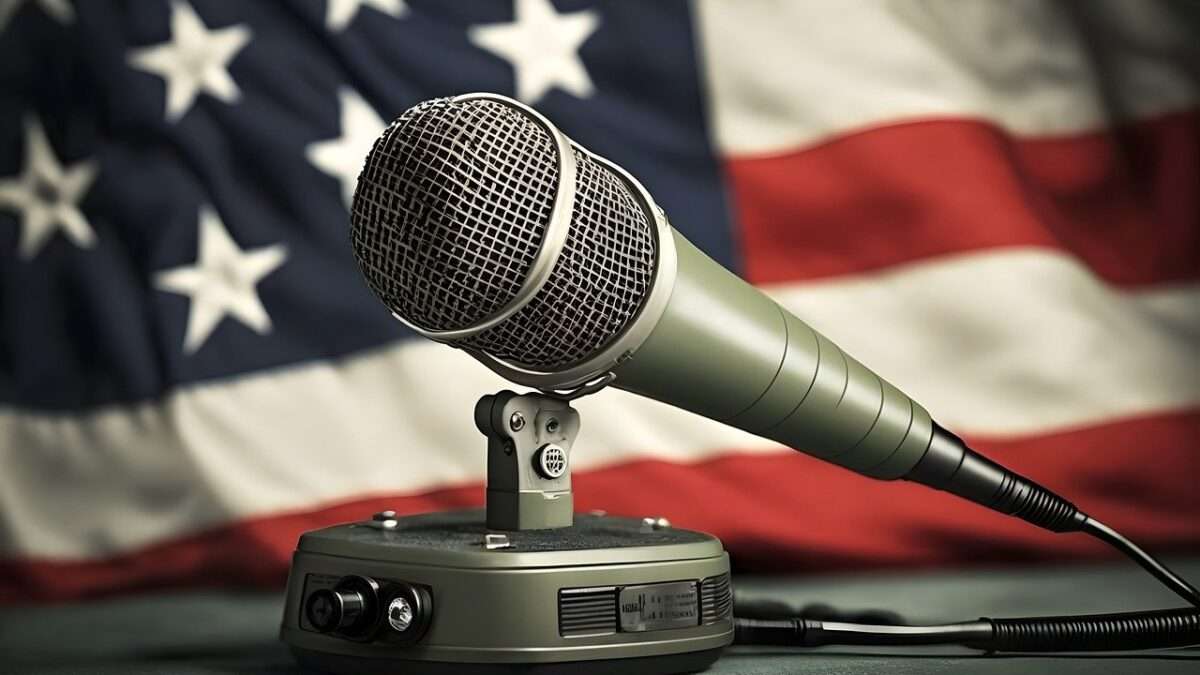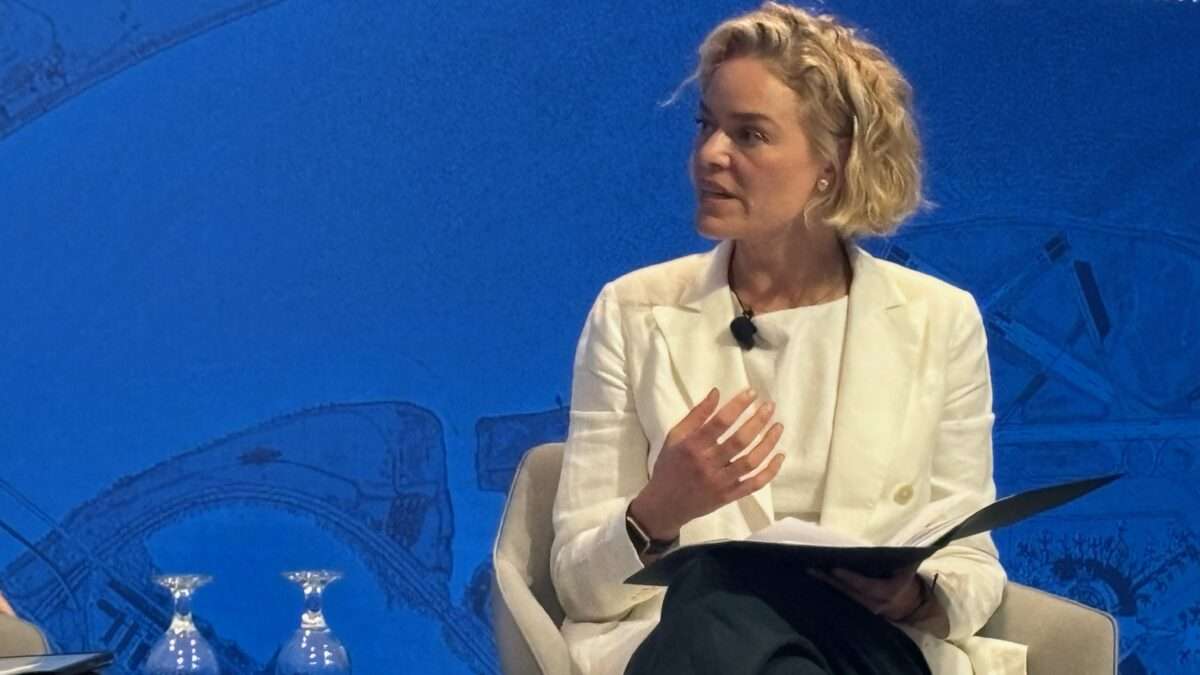Another Day, Another Doomed Plan To Defund NPR

Rep. Jim Banks (R–Ind.) announced yesterday that he will introduce a bill to defund National Public Radio (NPR). Marsha Blackburn (R–Tenn.) has said she hopes to do the same in the Senate. We live in strange times, anything can happen in politics, and there may be no faster route to looking like a fool than to issue a prediction. With that throat-clearing out of the way: No, of course Congress isn't about to defund NPR.
This latest wave of Defund NPR! sentiment follows an article by Uri Berliner in The Free Press, in which the NPR editor and reporter—make that former NPR editor and reporter, since he has since resigned—argues that the network "lost America's trust" by shutting out opinions disfavored by the center-left hivemind. I think Berliner's piece wavers between claiming too much (it would have been more accurate, though probably less SEO-friendly, to replace "lost America's trust" with "saw its niche grow somewhat smaller") and claiming too little (it ends with a plea not to defund public radio, since Berliner believes there's "a need for a public institution where stories are told and viewpoints exchanged in good faith"). But at this point the specifics of his essay are almost beside the point, since the debate it has unleashed goes far beyond what the article says. The proof is that people have been using it as a springboard to call for cutting off NPR's federal dollars even though Berliner goes out of his way to stress that that's not the result he wants.
And now the anger has spread, with NPR CEO Katherine Maher under fire for her history of left-wing tweeting. The troops are ready for battle. So why don't I expect Congress to stop the funds?
For three reasons. The first is the obvious one: The Democrats control the White House, and there aren't enough Republicans in Congress to override a veto, so at the very least this is unlikely to become law before 2025. A second reason is that it's difficult to devise a bill that cuts off NPR while leaving the rest of the public-broadcasting ecosystem alone. As the network's defenders never tire of pointing out, NPR doesn't get much direct support from the federally funded Corporation for Public Broadcasting (CPB). It gets far more money from its member stations, which NPR does not own, and which receive their own cash from the CPB (and, frequently, from other government sources, since many of them are run by state universities).
This shell game isn't an insurmountable problem, but it's the sort of thing that has tripped up legislators before. Last year, for example, Rep. Ronny Jackson (R–Texas) introduced a bill to prevent federal funds from flowing "directly or indirectly" to NPR, its TV cousin PBS, or "any successor organization." Well, how do you define "successor organization"? There are already several public radio networks out there, some of them pretty old. If the Morning Edition team drops its NPR affiliation and starts distributing the show through Public Radio Exchange, are they in the clear?
The easiest way around such tangles, of course, would be to write legislation that doesn't try to single out NPR and instead just cuts off the Corporation for Public Broadcasting entirely. That would keep the money from moving. But it also leads us to the third and biggest reason I don't think a defunding bill will get anywhere anytime soon: No matter how much it huffs and puffs, most of the GOP has no serious interest in defunding public broadcasting.
Yes, there are a few Republican officeholders who would rather see an openly liberal NPR that supports itself than a "balanced" system that relies on tax dollars. I'd bet a libertarian-leaning legislator like Rep. Thomas Massie (R–Ky.) would vote for that. But Massie is an outlier. If history has taught us nothing else, it's that the most powerful Republican officials aren't usually bothered by the idea that Americans are being forced to subsidize views they dislike. They just want the subsidies to go in a different direction.
Why do I say that? Because we've seen this process play out again and again, and it always ends pretty much the same way. In 1971, President Richard Nixon proposed a "return to localism" that would have effectively overthrown the crew running PBS, and a year later he vetoed a CPB appropriations bill; then PBS canned most of the programs that the president didn't like, the CPB brought a bunch of White House–friendly figures onto its board, and the president signed a budget increase. In 1994, House Speaker Newt Gingrich (R–Ga.) suggested that he might "zero out" the CPB's money; the chief long-term result was that several conservatives got public TV gigs. In 2005, a House subcommittee actually voted to cut the CPB budget by 25 percent and wipe out the rest over the following few years; that time things ended with a former chair of the Republican National Committee becoming chair of the CPB—which landed a higher appropriation, not a lower one. I could list more examples, but I've already written that article more than once and I don't want to write it again. Suffice to say that the CPB invariably survives these battles, that its federal support almost always increases, and that its rare budget cuts don't last long.
And—here's where we come back to Uri Berliner's article—one reason this keeps happening is because the attack so often comes down to the idea that NPR and PBS are unbalanced. That's true, of course: The big public-broadcasting operations have always tilted toward the dominant views of the social milieu that produces them, and Berliner is surely correct that this has intensified at NPR in the years since Donald Trump was elected president. But when bias is your chief complaint, you give the folks who run the networks an easy out. They would almost always prefer to gesture toward balance with some hires or fires than to see their money axed.
Is there a way around that? I think there is, but it would take a different approach to the fight. Instead of a narrowly partisan battle, bring together an alliance of people (mostly on the right) who are sick of subsidizing opinions they dislike and people (mostly on the left) who are sick of seeing those subsidies used as an excuse to insert the government into broadcasters' editorial choices. Adopt a plan to transform the CPB from a semi-governmental body into a fully independent nonprofit, bringing the federal role in noncommercial broadcasting to an end.
There was serious talk of doing this right after the Gingrich attacks shook up the broadcasters. In 1995, the New York Daily News even reported that a CPB spokesman had "confirmed that all the groups agreed on the need to establish an independent trust fund that eventually could replace federal funding." Then the CPB's subsidies started creeping upwards again and the idea moved back to the edges of the political spectrum. So a push like this has failed once before. But the partisan approach has failed to detach these operations from the government far more times than that. It can be hard to assemble a transpartisan alliance, but sometimes it's the only thing that can get the job done.
And yes, it's possible to bring people around on these issues. Back when I spent a lot of time covering the radical Pacifica radio network, I often encountered leftists who saw the CPB as a back door for government influence and felt they'd be better off without it. On the other side of the spectrum, after I wrote a blog post on this subject in 2011 I got a couple of emails from Ken Tomlinson, who had chaired the CPB for two years under President George W. Bush. Tomlinson had gone after public broadcasting for being unbalanced, a crusade that led to a lot of reshuffling of the system but no reduction in its federal support. He didn't care for how I had characterized his efforts, but he was friendly, and he seemed to have come around to the idea that the underlying problem was the purse strings, not the bias. "Bottom line, get tax money out of CPB," he told me. "Not just NPR. CPB."
Maybe someday we'll get there. But if Banks and Blackburn manage to pull it off this year, I'll eat an NPR tote bag.
The post Another Day, Another Doomed Plan To Defund NPR appeared first on Reason.com.



